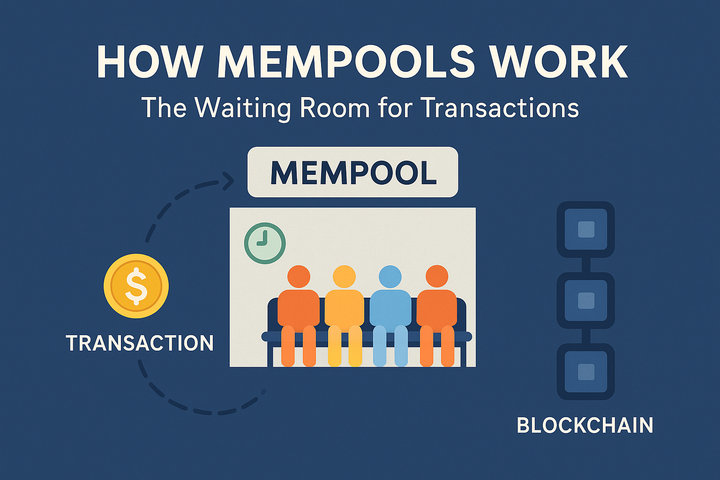DeScAI Revealed: How Decentralized Science Meets AI to Reinvent Knowledge Itself

Introduction: A New Scientific Revolution
Imagine science without institutions, no centralized hierarchies, peer-review gatekeepers, or paywalls. Instead, picture decentralized networks and autonomous AI agents collaborating in a global knowledge ecosystem. That’s DeScAI: the radical merge of decentralized science (DeSci) and artificial intelligence. It’s rewriting the rules of how we discover, validate, and share knowledge.
1. Why DeSci Needs AI (and Vice Versa)
The Problem: Traditional science is slow, siloed, and often exclusive.
- Research delays (peer review, funding decisions).
- Lack of transparency and reproducibility.
- Limited access for many researchers cryptoatlas.io+8ulam.io+8hackernoon.com+8en.wikipedia.orgbankless.com.
The Promise of DeSci: Blockchain-enabled funding, open data, and DAO-based governance.
Enter AI Agents: Think virtual scientific assistants:
- Automate hypothesis generation and testing.
- Analyze vast datasets (genomics, climate, neuroscience) faster than humans blog.aethir.com.
“AI agents can compress 50–100 years of biological progress into just 5–10 years.” blog.aethir.com
2. A Philosophical Shift: From Institutions to Protocols
DeScAI is more than tech; it’s a philosophical event.
- It dissolves the idea of a lone scientist, replacing it with posthuman assemblages: humans, machines, protocols, tokens, and interfaces intertwined.
- Knowledge validation shifts from traditional journals to infrastructural veridiction: trust through protocols and interface design.
- Governance morphs from centralised panels to pluriversal, polycentric systems—DAOs, votes, crypto-incentives arxiv.org+15bankless.com+15hackernoon.com+15tokeninsight.com.
“To govern DeScAI pluriversally... is to expand who can speak truth, what counts as truth…”
3. Five New Conceptual Tools
The paper identifies five frameworks for understanding DeScAI:
- Protocolal Epistemology – Knowledge as outcomes of code-driven protocols.
- Epistemic Individuation – Recognition of AI agents and machines as cognitive actors.
- Infrastructural Veridiction – Truth produced through protocol analysis and dashboards.
- Stacked Authority – Reputation from multiple decentralized sources, not a single institution.
- Epistemic Aesthesis – How interface design shapes what we see, trust, and care about.
These reshape everything—from journal edits to research ethics.
4. Practical Applications: Real-world Examples

- Aethir & AI-Driven DeSci: AI agents helping biotech and neuroscience; growing GPU-based compute networks tangem.comaxios.com+10blog.aethir.com+10chainscore.finance+10.
- OriginTrail, VitaDAO, ResearchHub: DAO-governed platforms enabling open funding and data sharing dwf-labs.com+3tangem.com+3chainscore.finance+3.
- NodeGoAI: Peer-to-peer compute-sharing platforms supporting decentralized model training arxiv.org+4en.wikipedia.org+4tokeninsight.com+4.
5. Governance Redefined: Accountability via Design
The shift from centralized control to protocol governance demands built-in checks:
- Layered DAOs – Multiple intersecting authorities with voting, vetoes, and forks.
- Protocol Legibility – Votes, thresholds, and parameters must be transparent and contestable.
- Interruption Mechanisms – Kill switches, pause buttons, emergency forks to guard against autocracy.
“A system that cannot be stopped is not advanced, it is authoritarian.”
Conclusion: Designing Knowledge for the Future
DeScAI isn’t just an innovation it’s a philosophical turn. It asks us to reimagine what knowledge is, who creates it, and how trust is built. Here’s the bold takeaway:
- Design matters: Protocols, interfaces, and tokens shape what counts as scientific truth.
- Power is distributed: Knowledge emerges from the choreography of humans, machines, and code.
- Trust is dynamic: Not static credentials, but live, algorithmic, scalable systems built with reflexivity in mind.
As we venture into the DeScAI era, let's build systems that care for inclusivity, for transparency, and for a science that doesn’t just explain the world, but invites us all to shape it.
Closing Thought:
DeScAI is not just about faster science it’s about reshaping who we see as scientists, and what counts as knowledge. It’s time to build science that belongs to all of us.
INTERNAL LINKS:
Decentralized Science (DeSci)
How DeSci Projects Work
The DeSci Movement
Seeing beyond the walls
Why Modular Systems Like Mitosis Matter



Comments ()